AI in Education: Not a Replacement, but a Rethinking
The rapid development of artificial intelligence (AI) is transforming all spheres of life, and education is no exception.
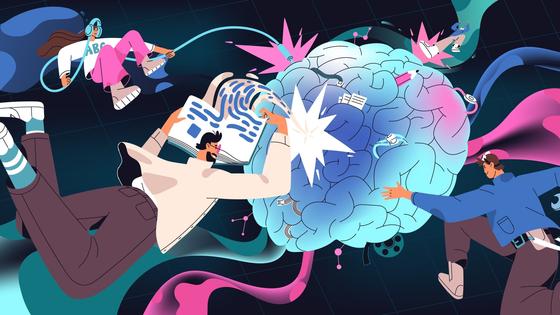
Technology as a Challenge and Opportunity for Education
The rapid development of artificial intelligence (AI) is transforming all spheres of life, and education is no exception. The pressing question is: Can AI not just complement but replace online learning?
On one hand, we see explosive growth in online courses, MOOCs, and EdTech platforms. On the other, tools like ChatGPT, Khanmigo, and other AI solutions are emerging. However, as Bridget Terry Long, Dean of the Harvard Graduate School of Education, emphasizes: «Technologies do not shape the future of education on their own. Their impact depends on how people in various roles respond».
Modern education stands on the brink of profound change. What seemed like science fiction just a few years ago is now everyday reality: chatbots, digital tutors, predictive analytics. These are not just tools - they challenge an entire system built for centuries around human interaction and traditional teaching.
AI's Potential in Learning: Hyper-Personalization and Accessibility
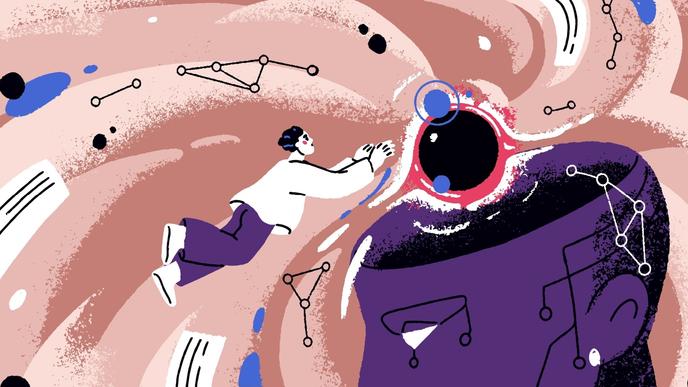
Among AI's key advantages in education is its ability to enable hyper-personalization. Each learner can receive a unique educational path tailored to their individual needs - pace of learning, preferred content format, motivation level, even mood.
AI-powered platforms track learning progress in real time and adjust explanations to a student's immediate needs. This is particularly valuable in subjects requiring step-by-step mastery, such as math or programming. If a student struggles with a concept, the system provides additional explanations, examples, and exercises. Unlike traditional classrooms where the pace is set for the whole group, AI operates on a one-on-one basis.
Sal Khan, founder of Khan Academy, believes AI can become a personal tutor for everyone, adapting to each learner's pace, interests, and skill level - the essence of hyper-personalized education. In his book, he writes: «AI will provide access to education for anyone who wants to learn any subject».
Analysts at Cognilytica note: «To use AI effectively, people must unlock their creativity, improve critical thinking, collaboration, and communication skills». They view AI not as an end goal but as a catalyst for renewing the entire educational ecosystem.
AI tools like GPT already demonstrate the ability to engage in meaningful dialogue, sustain motivation, and guide learning. They are used in diverse fields - from language learning to simulating philosophical debates. Particularly promising are solutions that create personalized exam or certification prep paths.
A Pearson and Morning Consult study found that the number of students who believe AI improves their grades rose by 11 percentage points in a year. Meanwhile, AI-powered sessions on MyLab nearly doubled - a direct indicator of increased engagement.
AI doesn't replace teachers but enhances them, enabling accessible, continuous learning. This is crucial in regions with teacher shortages, remote areas, or for students with special needs. If implemented wisely, AI could narrow the global gap in access to quality education - one of the 21st century's greatest challenges.
Inequality and Bias: The Risks of a Technological Divide
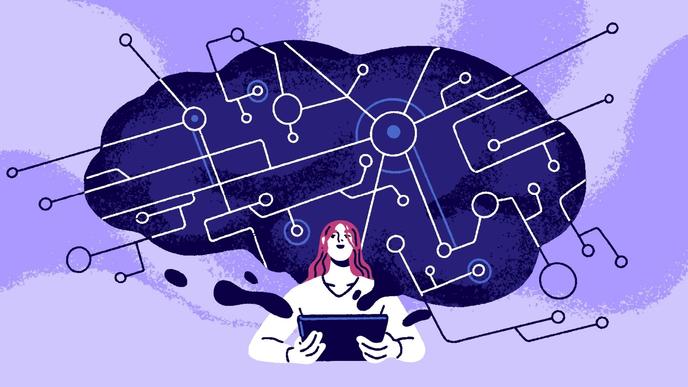
Yet experts warn that technology may deepen educational inequality. Those without access to live instruction may be left with only a chatbot.
Additionally, algorithmic bias and data privacy remain concerns. A U.S. Department of Education report stresses: «Education should not employ continuous surveillance and monitoring, as it may exacerbate discrimination and violate student privacy».
The EU's AI Act classifies educational systems as «high-risk» and demands transparency. China emphasizes aligning algorithms with «socialist values», while the U.S. takes a more cautious, less prescriptive approach.
As David Edwards, General Secretary of Education International, puts it: «We don't want children sitting in a room with a chatbot. Learning is about relationships, not transactions».
Beyond access, quality matters: Who controls AI programs? What data were they trained on? How secure are these solutions in protecting personal information?
The Human Factor: What Can't Be Digitized
A great teacher is not just a knowledge source but also a motivator, mentor, and mediator. They adapt lessons to context, foster interaction, and provide support.
As HGSE's Professor Xu highlights: «Neither AI nor any other technology can replace classrooms, teachers, and the human connections that truly drive learning and student development».
AI still can't improvise, read emotional cues, or account for cultural context-critical in humanities and for vulnerable learners. Empathy, ethics, and intuition resist formalization.
Rapid digital adoption risks alienation: Students may lose motivation, a sense of community, or trust in feedback. Technology should enhance humanity, not replace it.
Symbiosis, Not Replacement: A Collaborative Future
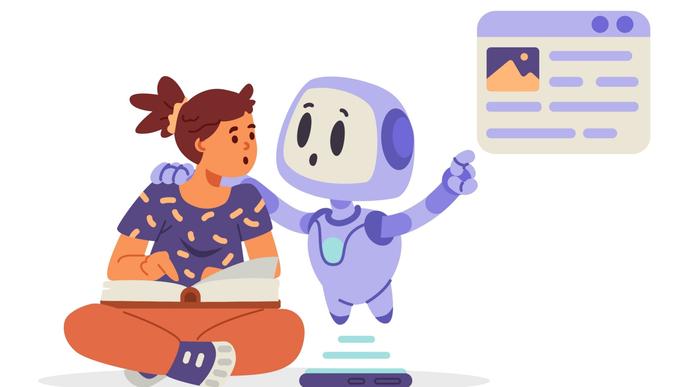
Demis Hassabis, CEO of Google DeepMind, predicts: «In the next 5-10 years, we'll see job displacement from new technologies. But after such disruptions, more valuable-and often more interesting-roles emerge».
The optimal scenario is symbiosis: AI handles routine tasks, data analysis, and visualization, while teachers retain their core role-educating humans as humans.
Examples already exist: Google for Education, Pearson, and Khan Academy use AI to personalize learning and boost engagement. UNESCO reports nearly half of university instructors employ AI in online teaching. As noted at the Askwith Forum: «AI is already shaping education's future - a reality policymakers, leaders, teachers, students, and parents must understand».
Emily Lai from Pearson adds: «This data underscores active learning's importance and AI's role in increasing student engagement».
HolonIQ reports over 60% of EdTech firms integrated AI components in 2024 - automated grading, smart assistants, recommendation systems. Yet the key isn't scale but purpose: What problems does AI solve? How is it woven into pedagogy?
A Pearson and Intertwine Insights survey found 77% of educators plan to use AI to enhance teaching, notably for creating materials and adapting content to diverse learning styles.
This refocuses attention on «soft skills» - critical thinking, creativity, communication - the irreplaceably human core of education in the digital age.
Lectera’s Online Courses by topic
Not Replacement, but Rethinking
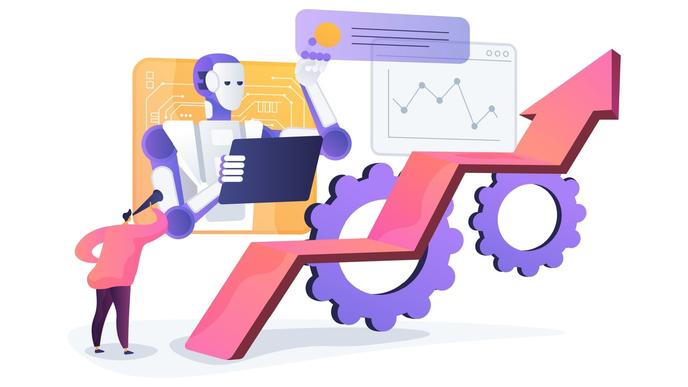
AI doesn't displace education - it invites its reinvention. It transforms methods, formats, and roles but cannot (and should not) replace human interaction, empathy, or mentorship.
All stakeholders - teachers, developers, parents, policymakers-face a challenge: not just adapting to AI but co-authoring its role.
AI isn't a new chapter but a new language. Whether it becomes a language of progress or oversimplification depends on us. No matter how advanced algorithms become, learning's purpose remains unchanged: to teach thinking, understanding, and being human.
As Professor Xu concludes: «The real question isn't who or what AI can replace, but how we leverage available resources. We must harness AI to amplify the strengths each element of the educational ecosystem offers learners».
In the future of education, digital and human elements shouldn't compete but complement. If AI is the tool, humanity remains the goal.
Share this with your friends via:
Latest News

In the UK, £23 million has been allocated for the expansion of the EdTech Testbed program — pilots of educational technologies in schools and colleges.

In the US, Tuskegee University announced the launch of Tuskegee University Global Campus (TUGC) — a new online platform for distance learning.

A significant stage in the development of the alternative education system has begun in West Northamptonshire in the UK: the County Council is actively calling on parents, guardians, and trustees to participate in shaping the future of this key area.

Outwoods Primary School in Atherstone, Warwickshire, having experienced deep sadness after the loss of their famous cat, Silla, has found solace in a new pet – a Maine Coon named Aloysius O’Hara.

In modern universities, artificial intelligence, and in particular ChatGPT, is rapidly transforming from a controversial tool into a full-fledged student assistant.












 £23 million allocated for the expansion of EdTech Testbed in the UK
£23 million allocated for the expansion of EdTech Testbed in the UK
 Tuskegee University launches Global Campus — a new online platform
Tuskegee University launches Global Campus — a new online platform
 Test: How Psychologically Mature Are You? Check Your Inner Foundation.
Test: How Psychologically Mature Are You? Check Your Inner Foundation.
 Test. Check Your Social Media Dependency Level!
Test. Check Your Social Media Dependency Level!
 Test: What Business is Right For You?
Test: What Business is Right For You?
 Test: How Prone Are You to Abusive Behavior as a Manager?
Test: How Prone Are You to Abusive Behavior as a Manager?
